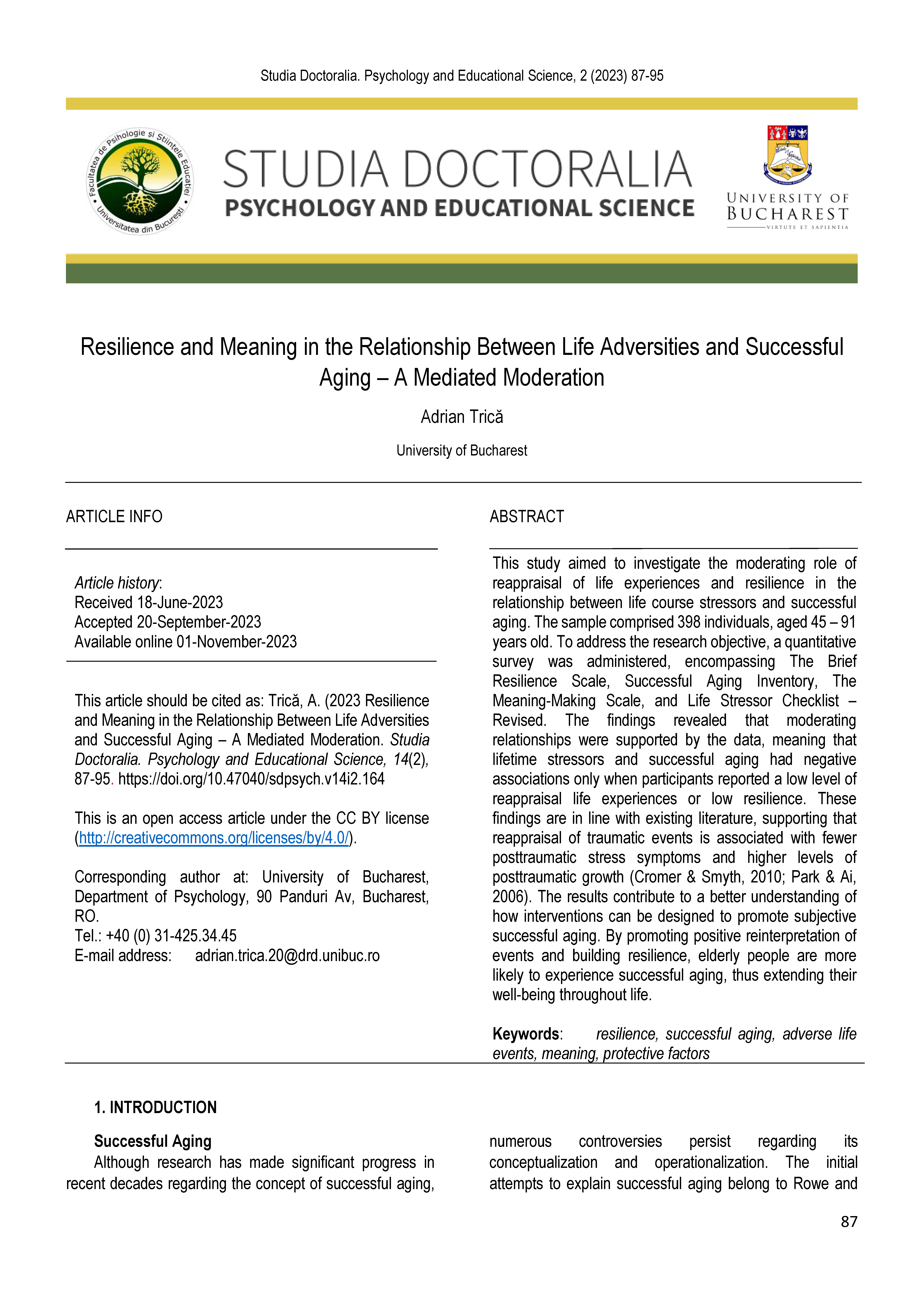Resilience and Meaning in the Relationship Between Life Adversities and Successful Aging – A Mediated Moderation
DOI:
https://doi.org/10.47040/SDPSYCH.V14I2.164Keywords:
resilience, successful aging, adverse life events, meaning, protective factorsAbstract
This study aimed to investigate the moderating role of reappraisal of life experiences and resilience in the relationship between life course stressors and successful aging. The sample comprised 398 individuals, aged 45 – 91 years old. To address the research objective, a quantitative survey was administered, encompassing The Brief Resilience Scale, Successful Aging Inventory, The
Meaning-Making Scale, and Life Stressor Checklist – Revised. The findings revealed that moderating relationships were supported by the data, meaning that lifetime stressors and successful aging had negative associations only when participants reported a low level of reappraisal life experiences or low resilience. These findings are in line with existing literature, supporting that reappraisal of traumatic events is associated with fewer posttraumatic stress symptoms and higher levels of posttraumatic growth (Cromer & Smyth, 2010; Park & Ai, 2006). The results contribute to a better understanding of how interventions can be designed to promote subjective
successful aging. By promoting positive reinterpretation of events and building resilience, elderly people are more likely to experience successful aging, thus extending their well-being throughout life.





